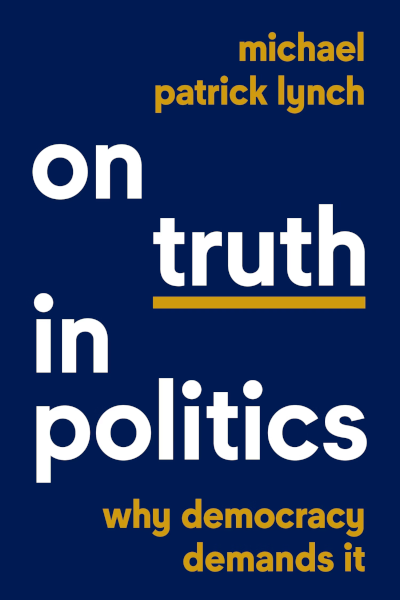Michael Patrick Lynch, Author
Do any of us really care about truth when it comes to politics? Should we? In a world of big lies, denialism, and conspiracy theories, democracies are experiencing two interlocked crises: a loss of confidence in democracy itself and the growing sense among many that politics is only about power—not truth. In this book, Michael Patrick Lynch argues that truth not only can—but must—matter in politics. He shows why truth is an essential democratic value—a value we need to sustain our democratic way of life—and how it can be strengthened.
Despite evidence that people are rarely motivated by truth when it comes to politics, On Truth in Politics argues that this isn’t inevitable. Accessibly written and rigorously argued, it draws on the American pragmatist tradition to develop an original theory of the nature and value of truth in the messy world of politics. Contrary to the belief of many, political beliefs can be true or false. But if democracy is to continue to be a space of reason and not just an arena of power, we must build a better infrastructure of knowledge, including stronger schools and media, and renew our commitment to science and history.
A vital and timely book, On Truth in Politics makes an original case for why democracy cannot survive without truth.
